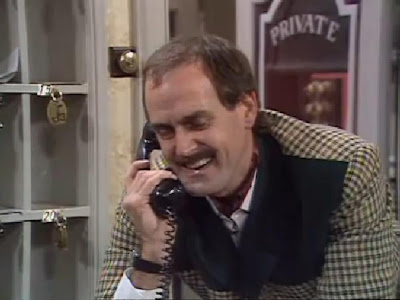The show moves on to a new town and Bronco Billy goes to City Hall to get a permit. While there, he bumps into Antoinette Lily (Sondra Locke) and John Arlington (Geoffrey Lewis), who are there to be married. Antoinette despises her future husband, but has to marry before she is thirty in order to inherit a large fortune. Afterwards, their car breaks down at the motel opposite the Wild West Show. The next morning, Arlington steals all her money and their repaired car. She is left to fend for herself.
Bronco Billy eventually talks Antoinette into becoming his new assistant, "Miss Lily", though she only agrees to do one show. The show of her first performance is unusually successful, although Miss Lily irritates Billy by not sticking to the script.
Leaving the show, Antoinette discovers that Arlington has been arrested for her murder (framed by Antoinette's stepmother and her scheming lawyer friend, who stand to gain her inheritance). Seizing the chance to get even with Arlington, Antoinette rejoins the Wild West Show.
She discovers that none of the performers are real Cowboys: they are mostly ex-convicts or alcoholics (or both). Bronco Billy was a shoe salesman who shot his wife for sleeping with his best friend. Nevertheless, Miss Lily begins to warm to the troupe.
Two of the show's performers announce that they are going to have a baby. The crew goes to a bar to celebrate. One of them gets himself arrested by police who discover that he is a deserter from the Army. Bronco Billy uses the show's meager savings to bribe the sheriff into letting the man go, swallowing his pride and enduring the sheriff's verbal humiliations for his friend's sake. Then the circus tent burns down. Everyone blames Miss Lily for their bad luck, but Bronco Billy defends her and proposes that they rob a train. They try to do this in the standard Western way (riding alongside and jumping on), but a modern train proves to be resistant to such an approach and they give up.
Next, the troupe travels to a mental institution at which they have previously performed pro bono. The head of the institution, who is obsessed with the Wild West, agrees to provide them with accommodation and to supply a new tent, and the inmates sew one out of American flags. Miss Lily and Bronco Billy spend the night together. By chance, one of the inmates turns out to be Arlington (he had been paid by the crooked lawyer to confess to being mentally disturbed when he "murdered" Antoinette). When he sees her, he raises a fuss and gets himself released. Bronco Billy and the show depart without Miss Lily.
Antoinette returns to a luxurious lifestyle, but she is bored and misses Billy, who drowns his loneliness with alcohol. The two reunite when Miss Lily returns to the circus.
| Bronco Billy | |
|---|---|
| Directed by | Clint Eastwood |
| Produced by | Dennis Hackin Neil Dobrofsky |
| Written by | Dennis Hackin |
| Starring | Clint Eastwood Sondra Locke Geoffrey Lewis Scatman Crothers Bill McKinney Dan Vadis Sam Bottoms Sierra Pecheur |
| Music by | Snuff Garrett |
| Cinematography | David Worth |
| Editing by | Joel Cox Ferris Webster |
| Distributed by | Warner Bros. |
| Release date(s) | June 11, 1980 |
| Running time | 116 minutes |
| Country | United States |
| Language | English |
| Budget | $6.5 million |

![[TMT02.jpg]](https://blogger.googleusercontent.com/img/b/R29vZ2xl/AVvXsEjlf3Wggx1pm2Bh8EsnyQbjr54v7y3SIcN8Mksbkdbbj3EZCvmFoEgOCL-U69SLAXGtuDwXIdSuBXkuX2oMy04rWhN-otSAVGFjzsMCfah4qr07zgWiMtR8AnANJ-ncMnlYtGcetF7OmlI/s1600/TMT02.jpg)





















